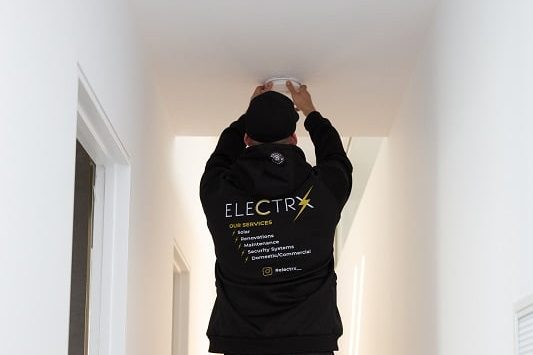Uncover the Causes of Smoke Alarm Beeping and Their Implications for Your Safety
Smoke alarms generate a beeping sound mainly as a crucial alert indicating that there is an issue requiring immediate attention. This sound could signify a low battery, an expired sensor, or an internal malfunction. Even smoke alarms that are hardwired into your home may emit chirps to indicate that something is amiss, even if they seem to be functioning normally. This auditory warning is essential, as it suggests your smoke alarm might not adequately protect your family from fire hazards until the issue is resolved or the unit is replaced. It’s vital to respond to these alerts promptly to ensure your home remains safe from potential fire threats.

Decoding the Significance of Smoke Alarm Chirping Sounds
When a smoke alarm continuously chirps, it is not merely an annoyance; it conveys a critical message regarding its operational status. Whether you hear a high-pitched chirp every 30 seconds or an unexpected warning sound in the middle of the night, this persistent beeping indicates that there is a serious issue that demands your immediate attention. In many households, the constant chirping is often the first sign that the smoke alarm is not functioning correctly. Ignoring these sounds can result in severe consequences, making it essential to understand the reasons behind them and take appropriate measures to rectify the situation.
Let’s explore the various reasons this may occur, the steps you can take to resolve these issues, and when it might be necessary to seek professional assistance.
Distinguishing Between Beeping Alerts and Full Alarm Sounds of Smoke Alarms
It’s crucial to understand that a beep, characterised by a short chirp every 30 to 60 seconds, serves as a warning signal. In contrast, a full alarm produces a continuous, loud sound, indicating that the smoke alarm has detected smoke or fire in the vicinity. If you’re experiencing the beep but do not see any signs of smoke or fire, this guide will provide you with the necessary information to effectively address the issue at hand.
Essential Steps to Take When Your Smoke Alarm Begins Beeping
Here’s a straightforward checklist to follow when your smoke alarm starts to beep:
- Replace the battery: If your smoke alarm runs on batteries or is a hybrid model, ensure you use high-quality batteries for replacement to guarantee optimal performance.
- Vacuum the unit: Gently vacuuming the smoke alarm can effectively remove any dust or insects that may be causing operational issues.
- Press the test button: Hold the test button for 5 seconds; it should emit a loud beep indicating it is functioning properly before stopping.
- Check the expiry date: If your smoke alarm is over 10 years old, it may be time for a replacement to ensure ongoing safety.
- Look for a fault light: Many smoke alarm models are designed with a red light for battery issues or a yellow light indicating sensor faults.
If the beeping continues after implementing these steps, it’s advisable to consult with a licensed electrician. You can easily schedule our services through our Smoke Alarm Services page or call us directly at 0488 812 237.
Recognising Common Causes for Smoke Alarm Beeping and Their Solutions
1. Understanding Low Battery Alerts from Smoke Alarms
Even hardwired smoke alarms come equipped with a backup battery to ensure they operate during power outages. When this backup battery is running low, the unit emits a beeping sound to alert you of the situation. This is the most prevalent reason for a smoke alarm to chirp, and addressing this promptly can prevent further complications and ensure your home remains secure.
2. Identifying Expired Smoke Alarm Units
Most smoke alarms are designed to last approximately 10 years. After this duration, the internal sensor may begin to lose its reliability, leading many alarms to emit beeping sounds as a signal that they have reached their end of life. You can typically find a sticker with the expiry date located on the side or back of the unit, making it easy for you to determine when it’s time for a replacement to maintain fire safety.
3. Troubleshooting Power-Related Issues in Hardwired Smoke Alarms
For hardwired smoke alarms, issues such as a loose connection, tripped circuit breaker, or inadequate earthing can trigger a fault beep, even if the green power indicator light is illuminated. If you suspect power-related complications, it is crucial to have a professional assess the situation to ensure your smoke alarm functions correctly and reliably.
4. Cleaning Dust and Insects from Your Smoke Alarm
Dirt and dust accumulating inside the sensing chamber of your smoke alarm can lead to confusion and may cause false alarms. Likewise, a spider or other flying insects could disrupt the alarm’s functionality. In such cases, a quick and gentle vacuuming of the unit using a soft brush attachment can often resolve the beeping issue without requiring further intervention.
5. Managing Humidity or Temperature Sensitivity in Smoke Alarms
Excessive humidity levels, such as steam from hot showers, or extreme temperature fluctuations can cause certain smoke alarm models to chirp or even trigger false alarms. To prevent these issues, it’s best to avoid installing smoke alarms near bathrooms or too close to kitchens where cooking activities and boiling water frequently occur. Ensuring proper placement is essential for optimal smoke alarm performance.
Determining When to Replace Your Smoke Alarm for Optimal Safety
Smoke alarms should be replaced if any of the following conditions are met:
- They are more than 10 years old, indicating the end of their effective lifespan.
- The beeping persists even after you have replaced the battery.
- The alarm does not respond when you press the test button.
- You observe any physical damage, cracks, or water staining on the unit.
- You have experienced repeated false alarms or malfunctions.
Additionally, it’s vital to check if your smoke alarm system complies with current Victorian safety standards. Most homes should be equipped with hardwired smoke alarms with battery backup installed in critical areas for enhanced safety and adherence to regulations.
For further safety information, you can refer to Fire Rescue Victoria’s dedicated smoke alarm page.
Comprehensive Smoke Alarm Inspection and Replacement Services for Your Peace of Mind
When you reach out to us for smoke alarm inspection or replacement services, we follow a meticulous process to ensure your safety:
- We conduct comprehensive tests on the smoke alarm unit and its power supply to ensure everything is functioning correctly.
- We check the expiry status and all connection points to guarantee proper operation and safety.
- We meticulously clean the sensor and housing to eliminate any potential obstructions that may interfere with functionality.
- We replace the battery if applicable, ensuring it meets high-quality standards for optimal performance.
- We remove outdated units and upgrade them as necessary to comply with current safety standards.
- We install new alarms featuring 240V hardwiring and lithium backup batteries for enhanced reliability.
- We ensure that the placement of alarms adheres to current recommendations for optimal safety and effectiveness.
All our work is certified with a Certificate of Electrical Safety, and we exclusively utilise smoke alarm models that comply with the regulations outlined in the Australian Standards register to guarantee your safety.
Frequently Asked Questions About Smoke Alarms and Their Maintenance
Is it Necessary to Hire an Electrician for Smoke Alarm Replacement?
Yes, hiring a qualified electrician is essential for the safe installation of smoke alarms, especially if they are 240V hardwired units. While battery-operated alarms can typically be replaced by homeowners, any unit connected to mains power requires the expertise of a licensed professional to ensure compliance with safety standards and regulations.
What is the Typical Lifespan of Smoke Alarms?
Most smoke alarms are designed for an approximate lifespan of 10 years. After this period, the sensor’s reliability can diminish, making timely replacement crucial for maintaining fire safety in your home and ensuring the alarm operates effectively.
What Are the Legal Requirements for Smoke Alarms in Victoria?
All homes in Victoria must have smoke alarms that comply with the Building Code. New constructions and major renovations are mandated to have hardwired smoke alarms with battery backup for enhanced safety and compliance with current regulations.
Can I Temporarily Silence the Beeping Without Addressing the Issue?
Only temporarily. Silencing the unit will not address the underlying problem, and the alarm will continue beeping or may fail completely until the issue is resolved. It is crucial to take effective action immediately to ensure your home remains safe from fire hazards.
The Importance of Promptly Responding to Smoke Alarm Alerts
A beeping smoke alarm serves as your home’s way of signalling a need for immediate attention. While it may be tempting to dismiss the sound or silence it by removing the battery, this action can severely compromise your safety. Your smoke alarm could be your only line of defence against potential fire hazards, so it’s critical to respond to the beeping promptly and effectively.
If your smoke alarm continues to beep despite your efforts, allow us to handle the situation for you. We will thoroughly clean, test, or replace components as necessary, ensuring that your home remains adequately protected against fire risks and hazards.
The Article: Smoke Alarm Beeping? Discover What It Means and Solutions first appeared on https://writebuff.com
The Article Smoke Alarm Beeping? Understand Causes and Solutions Was Found On https://limitsofstrategy.com



